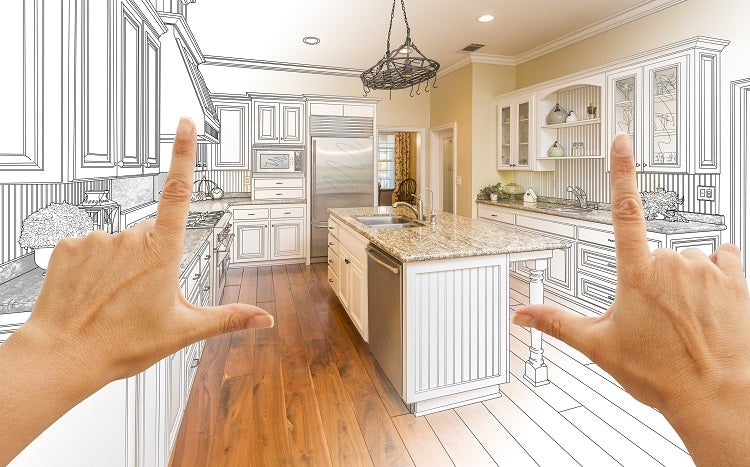How to Remodel Your Home without Overstepping and Annoying Your Landlord

If you have been in your rented home for quite some time, the chances are you are already bored of what you see within the four corners of your property. If anything else, it’s a good excuse for doing a little redecorating and remodelling.
However, before starting your project, make sure to seek your landlord’s approval. The last thing you need is to sour your relationship with the person who owns the home you live in.
You might have been living in your home for a substantial amount of time but you need to consider: if you do something to the structure that its owner finds objectionable and they are an irrational landlord, they do have the option to evict you.
If you want to avoid a situation like this, ensure you stick to your tenant responsibilities and talk to your landlord before you start your remodelling project.
Understanding your responsibilities will give you helpful ideas on how to avoid upsetting your landlord and overstepping their boundaries. Below are things you need to know to avoid doing this.
Repairs vs. improvements
Know the difference between repairs and home improvements.
Repairs are the landlord’s responsibility, except when the disrepair in your home is of your own doing.
Improvements, especially for aesthetic purposes, are your obligation as a tenant. You’d be very lucky if your landlord shares the cost with you. However, this is not something that you should demand from them unless their tenancy agreement contract indicates that.
Landlords can make improvements, but only if these are done to protect your health and safety, or if these are intended to make the property more liveable.
Check your tenancy agreement
Some tenancy agreements have additional clauses that list what tenants can or cannot do in the flat. Such a list typically includes which cost should be the landlord’s responsibility and which should be the tenants’.
If you make decisions that cannot be found in the tenancy agreement or go against what is in the agreement, your landlord can charge you. Most of them do this so they can remodel the flat to its original design.
Bear in mind, violating tenancy rules can lead to eviction.
Let your landlord know about your plans
As mentioned earlier, you need to let your landlord know about your plans. Never make the mistake of deciding on your own as this might put you in hot water with your landlord.
When getting their permission, put everything in writing as this will serve as your evidence in case they forget that they allowed the remodelling work. It’s also proof that you paid for all the expenses.
Work only on small fixtures and temporary improvements
Changing light fixtures, putting up temporary wallpaper, or adding a small piece of furniture does not necessarily need the approval of your landlord as these are not permanent installations. You can always remove them when you want to.
For example, if you change a showerhead into something more appealing to you, you will need to keep the old piece and put it back on the shower before you vacate the flat at the end of your tenancy.
Think about the cost
If you have a good relationship with your landlord, you might get them to pay part of the cost of the improvements or they might help you with the remodelling themselves. You could also ask them to do everything and request that they use your security deposit to pay for the cost. In any case, be mindful of how much you spend so you will still have some of your security deposit left when your tenancy ends.
If repairs need to be done
There’s no use in putting up wallpaper if there are cracks in your bedroom wall, because you can end up with a bigger problem. A wall with cracks presents an uneven surface; your newly wallpapered wall will be full of bumps and popped seams. Address the root cause of the problem first before anything else.
If you did decide to cover up the irregularities of your wall or add a new light fixture because your landlord has not responded to your repair requests, write them a follow-up email and include photos or videos of the issues. Repairs, especially if they involve your safety and security, are the responsibility of your landlord and must be done within a reasonable timeframe as this could cause other issues like leaks or, worse, fire.
Approach the housing disrepair experts at DisrepairClaim.co.uk if you are having a difficult time convincing your landlord to do the repair works in your home or if they decide to unjustly evict you. They know what to do to help you get the disrepair compensation claims you rightly deserve.





